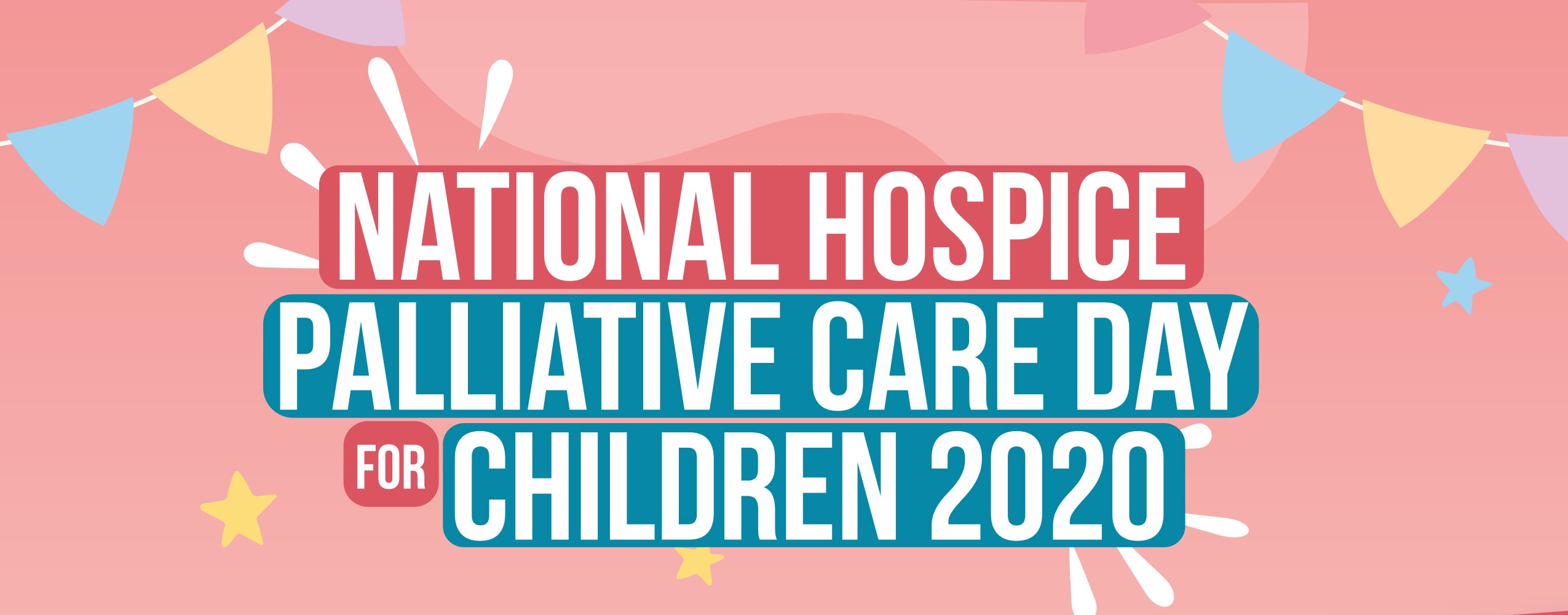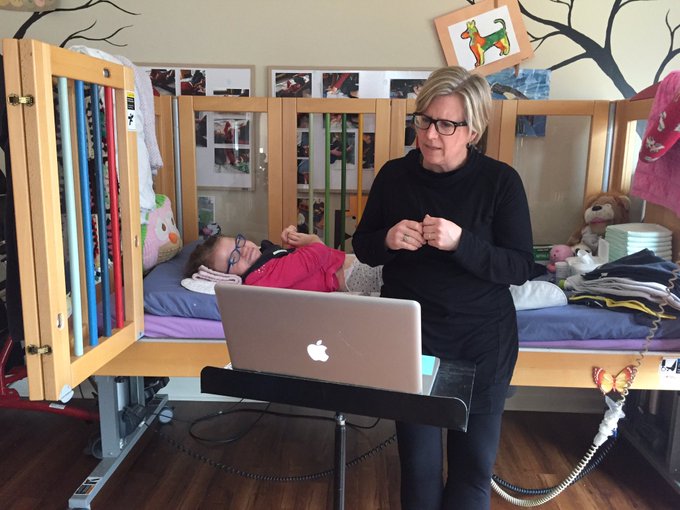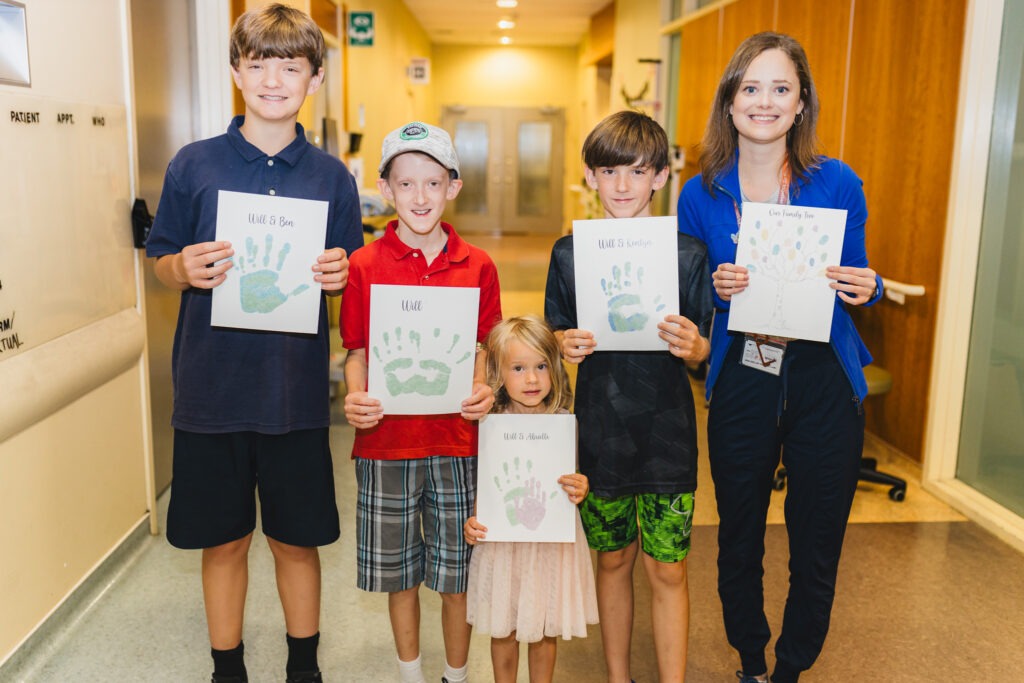
QoLA Care team is “Shining a light in the darkest of darks”
Having a child in the hospital can take an emotional toll on not only the patient but their family as well. The Quality of Life and Advanced Care program (QoLA, pronounced “koala”) at McMaster Children’s Hospital (MCH) partners with families to provide support for children with serious health conditions, along with support for their siblings.

Kate Sutherland is a child life specialist on the QoLA Care team.
The QoLA Care program started as a pilot program in 2015 and now supports more than 250 families a year. This partnership continues throughout a family’s journey and may include support during inpatient admissions, outpatient clinic visits, virtual and home appointments, and, when required, through joint visits with other community partners.
Kate Sutherland recently joined the QoLA Care team as a child life specialist. The goal of this role is to help children understand, process and cope with different experiences related to their illness. Child life specialists help parents and caregivers manage sensitive and emotional issues such as medical complexity, end-of-life care, or grief with their children.
Sutherland is supporting William, 11, and his family, including William’s siblings, to understand the changes that come with his diagnosis.
Supporting the whole family
William has a rare form of a complex lymphatic anomaly that results in a malformation of his lymphatic system, affecting his heart, spleen, bones, and lungs. The QoLA Care program helps him and his family cope with changes he experiences whether they are physical, mental, or emotional along his health-care journey.
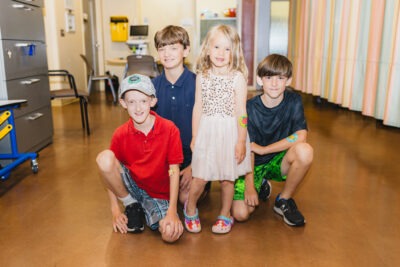
William and his siblings who receive support from Kate and the QoLA Care team.
William’s mom, Jen, is in touch with Sutherland often and communicates about things the family may need support with.
“From the beginning, I let Kate know some of the past history of Will’s illness and some of the challenges that we’ve come up against. These challenges included separation, anxiety, confusion, and fear,” says Jen.
Sutherland sees William along with his siblings, Kentyn, 9, and Ben, 13, to offer coping strategies for when they are struggling with the impact of Will’s illness. They also have a younger sister, Abrielle, 4, who sometimes joins the sessions.
“Jen is very good at actively communicating with me to let me know when the boys need support, and I plan our visits accordingly,” says Sutherland. “We really try to get a sense of who these families are, what matters most to them, and what challenges they may be facing.”
Jen feels Sutherland’s involvement not only helps William, but his brothers as well. “Kate has played an instrumental part in allowing the boys to express their feelings, understand them, and let them know that it is normal,” she says.
Creating safe spaces and making memories
The support plan for this family focuses on explaining William’s condition in a way that he and his siblings can understand while developing healthy ways of responding. It involves engaging in many activities with Kentyn and Ben that help to promote emotional expression and understanding.
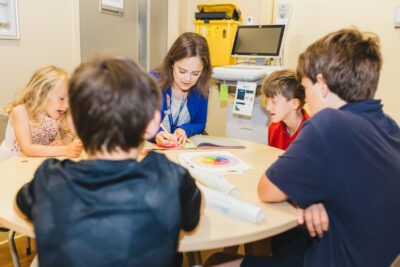
Activities promote memory-making, understanding, and fun.
“Kate offers the boys a variety of activities that can range from talking and story-telling, mindfulness, learning and education, meditation, and art-based projects,” says Jen. “The boys really enjoy all of these activities with her, and sometimes she even includes Abrielle in crafts.”
Finding meaningful ways to include and create experiences with siblings, no matter what stage the patient may be at, is paramount in Sutherland’s role.
“Keeping siblings connected is so important,” says Sutherland. “Creating a plan that helps to promote better understanding while also focusing on memory-making can be very therapeutic for families. We strive to increase those opportunities for happy experiences and moments.”
Sutherland uses play, art, books, and games to normalize and open avenues for careful conversations with children. She runs special-event craft nights where a group of children and siblings come together virtually to create together, as well as grief groups for bereaved children and youth.
Processing the feelings of the day
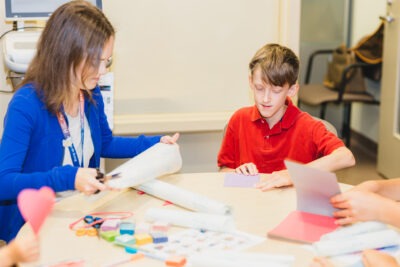
Sutherland and William working on an activity together.
Jen says that Sutherland’s involvement has allowed her family to feel supported when processing tough emotions.
“Often in times of crisis, families are in survival mode and don’t get a chance to sit down and digest the feelings from the day,” says Jen. “Over time, those feelings compound and can have negative effects. Being able to offload in a safe space is so very important, especially for siblings who may be separated from their parents during tough times. Bringing validity to thoughts that are scary and not understood, as well as offering coping strategies, can make a world of difference.”
A nightlight in the dark

Dr. Dave Lysecki
Dr. Dave Lysecki is the head of the QoLA Care team and also works collaboratively with Sutherland to ensure William’s care plan is communicated thoroughly.
“The care that Kate provides is indispensable,” says Lysecki. “As a kid, do you remember seeing strange shadows in your room then suddenly your brain starts to think those shadows are monsters? Then, someone plugs in that little nightlight in the corner of your room, and it made you feel better. You see what’s making the shadow, you learn about what it is, what it isn’t, and how you feel about it, and then you take some control over the story. Kate’s our program’s nightlight. She’s a shining light in the darkest of darks.”

